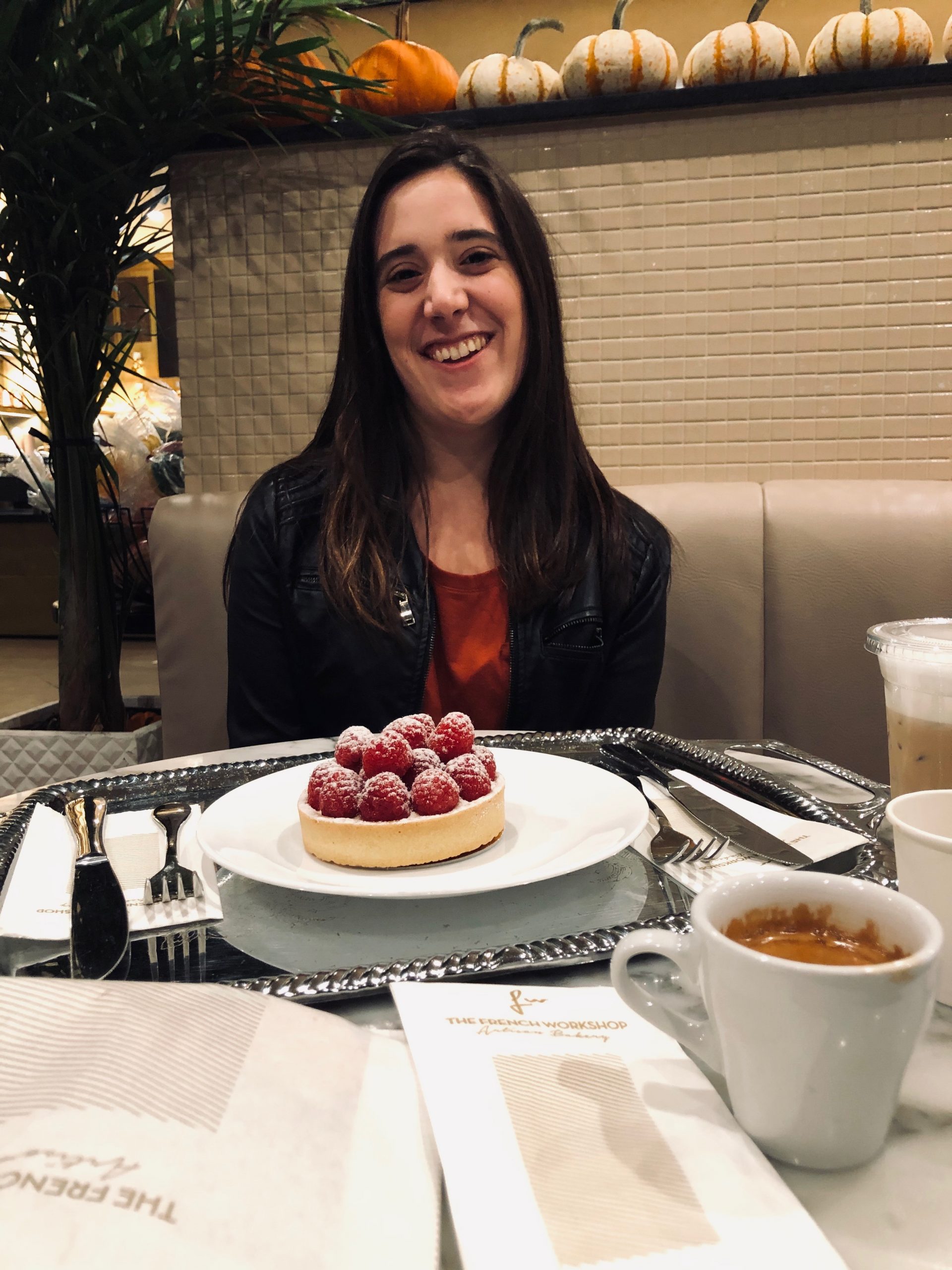As any aspiring novelist surely has found, often the greatest enemy one has to overcome is themselves. It is easy to fall into self-doubt while staring at that insurmountable blank page, disappearing into the minds of fabricated beings that aren’t really there. Not to mention the obstacles outside of one’s control: bills to pay and the judgments of non-writers. Each day brings its own challenges and unique distractions that take priority over writing. Casey, the protagonist of Lily King’s latest novel, “Writers & Lovers,” knows the writer’s plight all too well.
At the beginning of the novel, Casey’s failed romances, looming student debt and recently deceased mother all weigh on her heavily, preventing her from writing the novel that has been brewing inside of her for six years. Casey is in her early 30s and relying on her waitressing gig for income. All of her past romantic relationships have crumbled. Now, the pain of grief appears in every flock of geese that reminds her of her late mother.
All of this realistic struggle sets Casey apart as a protagonist. She is brutally aware and honest about the things that give her pause. Anyone who has gone through losing someone as Casey has can relate to her ever-present sense of sadness. It is a profound grief that King paints painfully well, even in the little details, such as Casey wishing she could talk to her mother and then remembering she can’t. True to life, the sorrow comes to Casey at unexpected times. Casey sees her mother in animals and objects, or — scariest of all — loses sight of her completely.
There is a piece of Casey in every aspiring writer and new-adult finding themselves lost outside of the shelter of academia without a clear path. King does not rely on a gimmicky or fantastical plot to write a grand narrative; she manages to place the responsibility of driving the novel on the shoulders of her delightfully ordinary protagonist. Casey’s witty, roll-with-the-punches personality supports the novel’s weight gracefully.
Casey is surprisingly resilient, disciplined and level-headed. She coasts through the days on her bicycle, using her humor and keen observations to keep her afloat, which makes her an immensely entertaining mind to visit. Although the majority of Casey’s friends have given up on writing, she still keeps with it. Not for bragging rights or notoriety, but because she must.
The novel opens on Casey carrying out her early morning routine. She tries to squeeze in a few hours of writing while trying to keep all her troubles out of her mind. She walks her landlord’s dog each day before writing some more, then goes to her day job. From the very beginning, it is clear Casey makes a slow yet steady crack at her novel. She does not care to deviate from her daily routine.
However, on this particular day where the novel finds Casey, her landlord asks her about her progress. Cruelly, he accuses her of having nothing worthwhile to say, let alone put in a novel. Yet Casey does not let the assumption blindside her; instead, she concludes, “I don’t write because I think I have something to say. I write because if I don’t, everything feels even worse.”
As it is for many artists, writing is a means of spiritual survival for Casey. It is not a natural calling or instinct that drives her, but a knowledge that the world would feel so much duller without it. Although it is not clear how she will do it, there is no question that Casey has the attitude necessary to eventually finish her novel — a sentimental homage to her mother’s life in Cuba.
It seems that King was able to make Casey feel so tangible to readers by taking inspiration from her own life and journey to become a novelist. King has taken the motto of “write what you know” in a very literal sense. Like her protagonist, King has also lived in Spain for a period of time. She has held teaching positions and numerous restaurant jobs like Casey while struggling to make it. Though King has borrowed from her own experience, she does not do so in a way that feels cliché. Rather, this contributes to Casey’s appeal and strengthens her as a protagonist. Readers are invested in Casey as a character and thus invested in her success, both romantically and in her writing career.
The way King presents the plot of “Writers & Lovers” also contributes to its engrossing nature. King concludes each chapter on a suspenseful note. She knows how to keep her readers engaged in the story. The first chapter of the novel ends on a voicemail left on Casey’s machine from her ex-lover Luke, someone alluded to throughout the chapter yet never fully detailed.
Chapter 1 does not yet allow Luke to introduce himself as a character. However, Chapter 2 picks up in the past, at the writer’s retreat where the two met. This chapter delves into their two-month-long romance. It allows readers to get swept up in Casey’s passion just as she did and to get to know her better, to know who she was when she had the illusion of happiness that she is now without. Chapter 2 concludes in the same way as the first: In one line of dialogue, Casey finds out that Luke was married the whole time and betrayed her by lying.
Aside from demonstrating King’s talent for storytelling, this chapter also displays King/Casey’s familiarity with the absurdity that comes with knowing other writers and being a part of a writerly community. On the retreat, Casey encounters an amateur film featuring a power tool and a raw egg. Luke writes poems about “lightning bugs, bullfrogs, and finally, a dead child.” Casey’s own trusted confidant and best friend, Muriel, writes a novel about World War II.
To know other writers is to know their inner fascinations and spiritual passions, the little details that inspire them. King creates random quirks in each of her characters, making them all unique and memorable. They speak to the reality of knowing other writers. What appears to be nothing to someone is everything to someone else. Although writing is an isolating experience, King does not just center “Writers & Lovers” on Casey’s solitary journey, but on the community aspect of writing as well.
The situation with Luke sets Casey up to be uncertain about her romantic prospects. Later on in “Writers & Lovers,” she dates two different men at the same time. Both represent the different paths Casey can take in her life. The first is Oscar Kolton, a published writer and parent of two young sons. Oscar offers Casey a promising life of stability and motherhood, inviting her to move in with his family and abandon her financial woes, presenting Casey the opportunity to ease some of her burdens.
Casey also begins to date an amateur writer named Silas. Silas is also a spontaneous spirit, who, like Casey, does not have much in the way of luxury. He too is grieving a loved one. To Casey, he is just like every other writer she has dated. Yet she cannot help feeling inexplicably drawn to him.
Casey’s romantic prospects represent her own divided self; though Oscar believes her to be “Holly Golightly” she feels in reality like a “blighted Jean Rhys character.” She must choose between stability and improvisation, between being a “real person,” like her mother, and the fraud she perceives herself to be.
Most essential to Casey’s self-discovery is her observations on the constructs of being a female writer and the learned passivity that seeps into her self-perception. Casey reflects on how, “nearly every guy I’ve dated believed they should already be famous, believed that greatness was their destiny and they were already behind schedule… no woman has ever told me that greatness was her destiny.” This fundamental difference in female and male ego is little discussed in the realm of writing. King’s perspective on it in “Writers & Lovers” is thus refreshing and true to life. Women are taught to lack the self-confidence necessary to propel them to desire success — in both writing and love.
Eventually, Casey finishes her novel, finds stability and chooses the right love interest, stressing the nature of life to eventually work itself out. Her message is simple — the miserable, tortured condition of the present moment will not last forever. Whether a high or low point in one’s life, every chapter has its final page.
The relatability of Casey as both a person and an aspiring writer makes her worthy of all the praise the novel has received so far. “Writers & Lovers” averages 4 out of 5 stars on Goodreads. The novel’s simplicity, realism and portrayal of the beauty of the everyday make it the ideal read for any aspiring writer, college student fretting over the future or anyone who needs a reminder that dreams are worth pursuing.

















